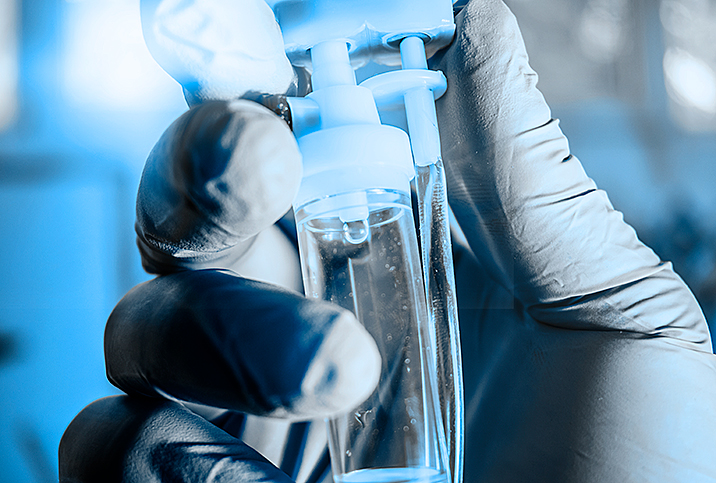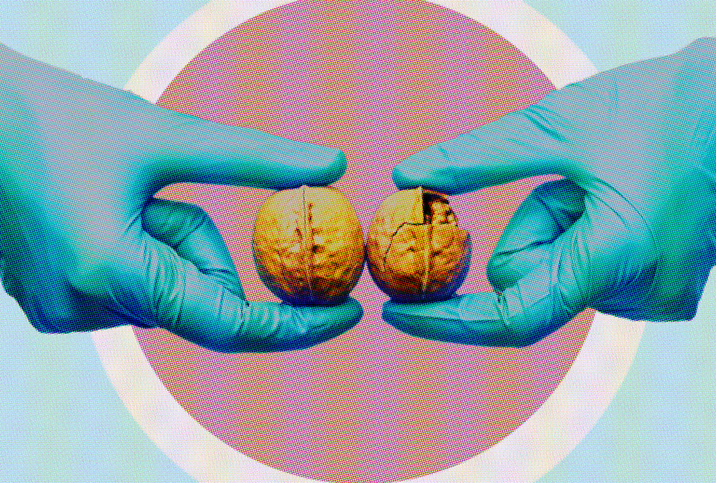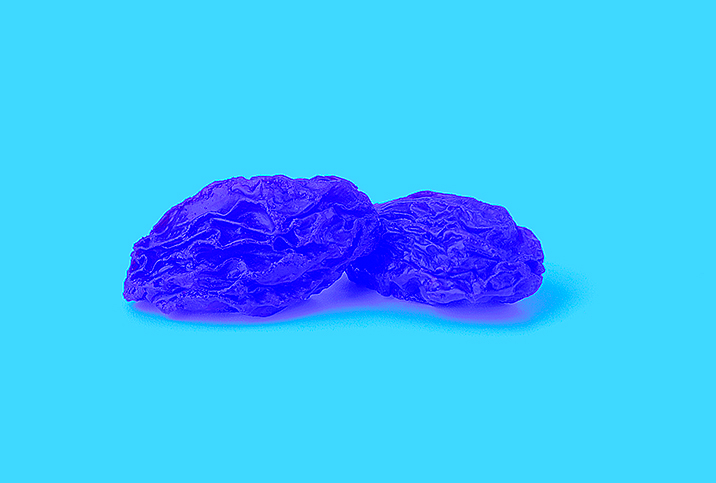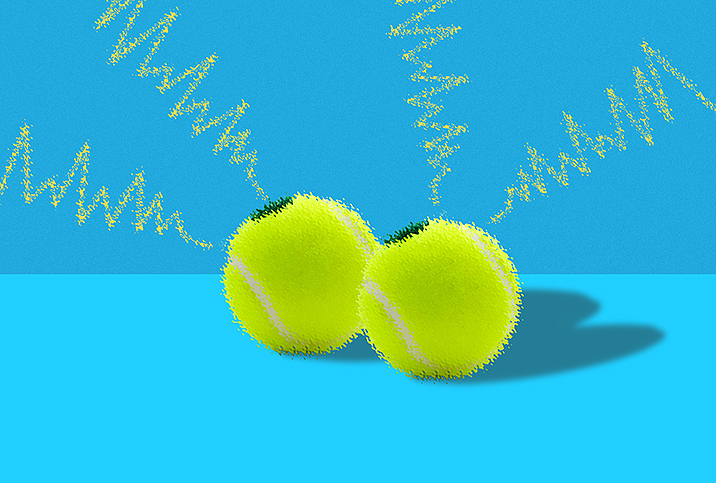Testicular Cancer Treatment Can Save You But May Affect Other Organs

An old saying claims that sometimes the cure is worse than the disease. While not quite the case with testicular cancer, a diagnosis does bring seemingly unsavory treatment recommendations from doctors. While these options are most likely lifesaving necessities, they also come with their own risks.
Each type of testicular cancer treatment—chemotherapy, surgery or radiation—affects the body differently, explained S. Adam Ramin, M.D., a urologist and the medical director of Urology Cancer Specialists in Los Angeles. Here's how different parts of the body can be impacted long-term, depending on treatment.
Side effects from surgery
If the chosen treatment is surgery, the most common long-term side effects are loss of a testicle (almost always), infertility and kidney damage.
Loss of a testicle
Ramin explained the most common side effect of surgical treatment for testicular cancer is the loss of one testicle because it has been removed for biopsy and containment purposes. Usually, this is not dangerous, but the patient will be down a testicle.
Infertility
In more advanced cases, Ramin said, a specialized procedure called retroperitoneal lymph node dissection may be required. During the procedure, the surgeon removes all of the lymph nodes along the great vessels in the abdomen, which are the aorta and the inferior vena cava.
"It's a very big operation," he said. "Essentially, all the lymph nodes below the two renal arteries along the vena cava and aorta are removed down to the common iliac vessels."
With this type of treatment, patients are at risk of developing infertility due to the potential resulting anemission, meaning failure to eject semen (and sperm) during orgasm.
"Patients who undergo this particular procedure develop a problem where, when they reach an orgasm, they will not have any semen or sperm come out of their body," Ramin said.
Obviously, sperm is required for conception, so without sperm, the man is at risk for infertility.
Kidney damage
While kidney damage is not a very common side effect, it does happen. Ramin explained that if the type of surgery performed requires the removal of some of the blood vessels that supply blood to the kidney, there is a risk the kidney may get damaged in the long term due to a lack of blood flow.
Side effects from chemotherapy
Chemotherapy is meant to kill cancer cells but can impact healthy cells, too.
"Chemotherapy is usually not a specific kind of treatment that only goes to a certain part of the body," Ramin explained. "It essentially affects every single cell and every single organ in the body, so it's possible that the chemotherapy can have other side effects. So every single organ is a target in terms of complications."
While there may be a risk for multiple organ involvement, the most common side effects from chemotherapy are confined to a few organs.
Lung damage
Ramin noted that apart from chemo's common short-term side effects—nausea, vomiting, weight loss, hair loss—in the long-term, fibrosis of the lungs can develop.
In fact, he pointed out that Lance Armstrong, the world-class cyclist who beat testicular cancer, elected not to have one particular chemotherapy called bleomycin, one of the most effective ways of treating testicular cancer, because it causes permanent lung damage.
"It essentially causes a permanent fibrosis, which is scarring or thickening of the lung tissue," Ramin said. "And when the lung tissue becomes thickened or scarred, then it cannot expand as much. It cannot take in as much air, so athletes will be short of breath and develop decreased exercise tolerance, whereas a person who's not an athlete will still be feeling OK and can have a normal life."
Unfortunately, chemo-related lung damage puts that individual at higher risk for developing coughing and breathing problems, and makes them more susceptible to infections, added Jennifer Linehan, M.D., a urologist and associate professor of urologic oncology at the Saint John's Cancer Institute at Providence Saint John's Health Center in Santa Monica, California.
Nerve and heart damage
Long-term peripheral nerve damage—numbness and tingling in the fingers and toes are examples—and damage that causes decreased heart function can also happen as a result of chemotherapy, Ramin said.
Infertility
Just as with surgery, anyone who goes through chemotherapy has a long-term risk of infertility. That's why sperm-banking is typically recommended before a patient begins any cancer treatment.
Ear damage
According to Ramin, it's possible chemotherapy causes damage to the acoustic nerve, which is responsible for hearing. A 2018 study suggested the risk of damage to the ear was higher in men—especially older men—undergoing cisplatin-based chemotherapy.
"Patients who undergo this kind of chemotherapy may have ringing in their ears or may develop a certain level of difficulty with hearing," Ramin added.
Linehan also noted that platinum-based chemotherapies can cause hearing damage. In many cases, patients' hearing can be recovered if the loss is detected early enough for doctors to switch the type of chemotherapy being used. If you notice any problems with your hearing while undergoing chemotherapy, tell a doctor immediately.
Kidney damage
During chemotherapy, the kidneys may lose some function, though usually only temporarily, according to Ramin. However, there is a chance the kidneys may lose some baseline functioning over the long term.
"There may be a small amount of renal failure with patients who want to go chemotherapy," he explained.
Side effects from radiation
Ramin explained that common side effects of radiation cause issues with the bowels (frequent bowel movements) and the intestines (obstruction that may require surgery), in addition to difficulty with digestion, blood in the stool, and the possibility of developing secondary malignancies, such as leukemia and lymphoma.
How to minimize the risk of side effects
While testicular cancer treatments might feel like a necessary evil and like there isn't always a good solution for minimizing the risk of side effects, patients can take some steps that may help.
For instance, while undergoing both surgery and chemotherapy, it's important for patients to stay extremely well hydrated. Linehan explained the primary reason for pushing hydration is to make sure the kidneys are protected. In fact, intravenous fluids are given during the administration of the chemo for this very reason.
It's also helpful to know that doctors specifically check for any issues with toxicity and tailor chemo doses based on the results.
"During chemotherapy, patients undergo multiple testings to look for toxicity, and if toxicity issues are rising, then the dosing may be altered or the frequency of regiment that has been given gets altered to try to minimize these risks," Ramin noted.
Overall, many factors determine the severity of long-term side effects. For example, more advanced cases of cancer require more intense treatment, and personal factors—including age, genetic makeup, and other medical conditions such as diabetes or obesity—also play a role in the treatment's impact on long-term health.
"We're essentially balancing saving a person's life with quality of life," Ramin said.
But Linehan pointed out that most of these side effects happen in fewer than 10 percent of patients, so long-term impacts may be rare—and necessary to endure to save your life. Anyone suffering from testicular cancer can be assured that all of the specialists, such as urologists, radiologists and surgeons, will help make the decisions that are best for them.

















